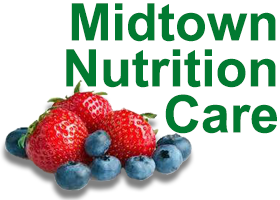EATING FOR A HEALTHIER PLANET
1. Eat more plant-based meals. Try eating at least 1-2 vegetarian meals a week, such as lentil soup or black bean soup with a side salad with one-quarter avocado, or a falafel sandwich, or beans or lentils over quinoa or buckwheat with sautéed vegetables.
2. Eat locally grown food, and in-season. Shopping at farmers markets can help you eat locally and in-season. Also, you could sign up for CSA (community-supported agriculture) where you buy a share in a farm and food from the farm is typically delivered weekly to a drop off point. It’s a great way to support a local farm and discover new produce.
3. Bring your own cup to use for water, coffee, or tea. Many coffee shops will give you a discount if you bring your own cup, including Starbucks.
4. Try out new foods. Three-quarters of the world’s food comes from 12 crops, and 5 animals, and there is so much more variety in the world. Knorr and the World Wildlife Fund (WWF) have identified 50 foods that are nutritious and better for the planet because they take less resources to produce: https://www.knorr.com/us/en/future-50/why-it-matters/future-50-foods-for-a-healthier-planet.html
5. Eat less-processed food. Less-processed food is not only good for your health, but it is also good for the planet. Eating fresh fruits, vegetables, nuts and seeds are better for your health and the planet, especially if you buy them in reusable containers.
6. Buy what you need. The average household wastes about 30% of the food it buys.
7. Bring your lunch and utensils. This should save on the amount of calories you consume, the money you spend, and the trash you produce, and it will reduce the amount of single-use plastic you use.
8. Bring your own shopping bag and produce bags when you go grocery shopping. This will reduce the amount of plastic bags you use. Did you know the average plastic bag is used for 12 minutes? However, if you do use a plastic bag, drop it off at your next trip to the grocery store, pharmacy, or Target. Most will have a bin to drop off for recycling.
9. Compost. Compost your food scraps, such as fruit and vegetable peels, pits, coffee grounds, bread, and tea bags.
